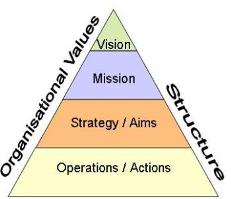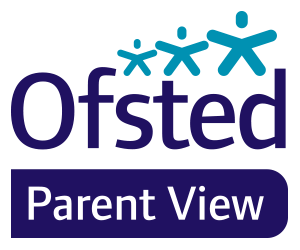In a special interview I quiz David Marriott on what it means to be a governor and the challenges that they face in the current educational climate.
GD: Hello David
Marriott and welcome to the Matravers Governor Blog. Please tell us a little
about yourself.
DM: I am an
education consultant specialising in governance and school leadership. I served
as Head of Governor Services for Wiltshire Council between 1995 and 2011. Prior
to that role I was a teacher (English and Drama) for 21 years in 5 different
secondary schools, including deputy headship in the city of Bristol.
In recent years I
was a governor at Rose Hill primary school in Oxford and while my children
attended Priory secondary school in Weston super Mare in the 1990s I served as
a parent governor for four years. I recently served as chair of the Interim
Executive Board (IEB) of a primary school in Special Measures and steered it to
become a sponsored academy.
I was a member
of NCOGS (National Co-coordinators of Governor Services) for many years, was
Vice Chair between 2006 and 2009, becoming its Chair in 2009.
I’ve written 4
books on different aspects of governance, including The Effective School Governor, 1998; Monitoring and Evaluation, 2004, revised 2009 and 2011, and Being Strategic, first published in 2005
and revised 2011. Most recently I wrote Getting
to grips with performance-related pay (e-book) and Outstanding governance for academies for Optimus Publishing, both
2013. He contributes to the School
Governor’s Yearbook annually.
As an
independent consultant he has provided a wide range of services in ten
different local authorities and for various other organisations.
I run a website (
www.thegovernor.org.uk)
offering a growing library of free downloadable resources and information for
governors, regular opinion pieces and my consultancy services. Contact me via
davidmarriott@gmail.com or on 01793 323780 or 0770 3367451.
GD: What should
be the main purpose of the Board of Governors?
DM: I’m very
comfortable with the DfE’s definition:
to ‘conduct the
school with a view to promoting high standards of educational achievement at
the school’
GD: How does
that work out in practice?
DM: It means we have
to focus on the children and their educational outcomes – everything else is
less important, but can contribute to achieving the end result we seek.
GD: What do you think lies
behind the Department of Education’s suggested change in nomenclature from
‘Governing Body’ to ‘Board of Governors’?
DM: Two things, I
think. The first is an understandable desire by the DfE to iron out some of the
practical differences between academies and maintained schools. In academies,
especially those in a chain or sponsored academies the governing body can be
more like the board of directors in a company – and, of course, academies are
companies. The second is to emphasise that although governance remains a
voluntary activity it needs to be done in a professional way.
GD: How does the
role of Chair of Governors differ to that of Head Teacher?
DM: The chair is the
head’s line manager and the head is accountable to the governors, mainly
through the chair. The head’s job is to lead and manage the school on a
day-to-day basis. The chair should keep out of the way most of the time but
good and regular communication between the two is essential.
GD: What would
be your most useful piece of advice for a new or aspiring Chair of Governors?
DM: In theory, if
you get it right, you should have less to do than any other governor!
Delegation is the key to success. Don’t try to do it all yourself.
GD: How may a
Board of Governors best prepare for an Ofsted inspection?
DM: Share knowledge
and understanding of the school between all the governors. It’s reasonable for
some to specialise in particular areas but don’t allow any one governor to have
a monopoly of knowledge of anything. Make sure your minutes reflect the
challenge you present to the head and leadership team. Prepare simple summaries
logging your impact as a governing body.
GD: What are the
advantages and disadvantages of a school becoming an Academy from the
perspective of governance?
DM: It depends on
the kind of academy you become. The vast majority are converter academies where
governance remains similar to that in maintained schools, with a sharper
accountability for school finances. In sponsored academies and especially those
in a chain, the “local governing body” in each school may have significantly
reduced responsibilities. This can be good news if it enables a sharper focus
on school performance with fewer distractions of other responsibilities but it
can also feel like an emasculation.
The key thing is
that an academy is a trust and the trustees rather than the governors are ultimately responsible for what goes on –
though trustees are nearly always governors, too!
GD: You are
Secretary of State for Education for the day. What single reform would you make
in order to raise standards in schools?
DM: Instigate a five
year moratorium - or maybe 10-year
moratorium - on all school reforms to allow schools to breathe and find their
own way forward.
GD: What have
you found most enjoyable about governance?
DM: I’m a democrat
and I believe that public institutions should be accountable to the people they
serve. School governing bodies are a living example of how that can work in
practice. My enjoyment comes from seeing a really good governing body doing its
job well.
GD: What have
you found most frustrating about governance?
DM: Governors who
don’t pull their weight or abuse the position, damaging the reputation of
governance as an institution.
GD: If you could
recommend only one book on school governance, what would it be?
DM: People have
stopped writing books about governance as everything’s online these days. I
think that’s a real shame but - and I
declare an interest at this point – “
The School Governor’s Yearbook” is
essential reading. I contribute to it but I find I use it regularly each year
to remind myself of the key issues, governors’ statutory responsibilities and
things like that.
GD: You maintain
a blog, ‘The Governor’. What role may blogging play in improving governance?
DM: Hard to say! I
sometimes use mine simply to blow off steam! The more governors share their
experiences, though, the better. Governance can be an isolated activity and the
more we share the stronger we get.
GD: Which
governor blogs do you specially recommend and why?
DM: I don’t really look at many. My friend
Ruth Agnew writes
a good one. I tend to look at websites dealing with education in general and
the
Guardian online is where I start.
Warwick Mansell and
Peter Wilby are both
excellent commentators. I was very sad when
Mike Baker died last year. His
website was the best.
GD: That just about wraps things up. Thanks, David.












